Adaptation to permafrost thaw - Welcome to Yakutia, Russia!
June 2018
Yakutia, Russia
Written by Natalia Doloisio
We are six researchers from the CEARC Laboratory (Cultures, Environments, Arctic, Representations, Climate) which is located in France: Jean Paul Vanderlinden, Mateo Cordier, Charlotte da Cunha, Magali Vullierme, Alexandra Lavrillier and I (Natalia Doloisio). Part of the WP7- Natural Resources, Economy and Coastal Community Planning within Nunataryuk.
The first scoping trip to Russia was held between June and July 2018 to the city of Yakutsk which is the capital of the Sakha Republic or “Yakutia”.
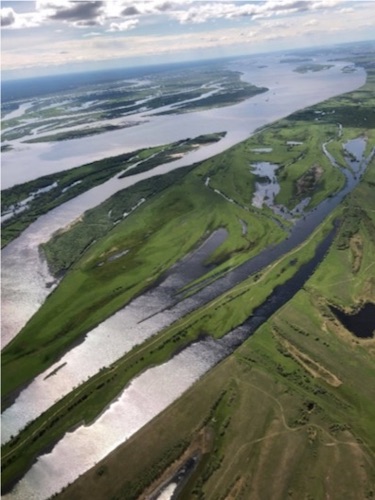
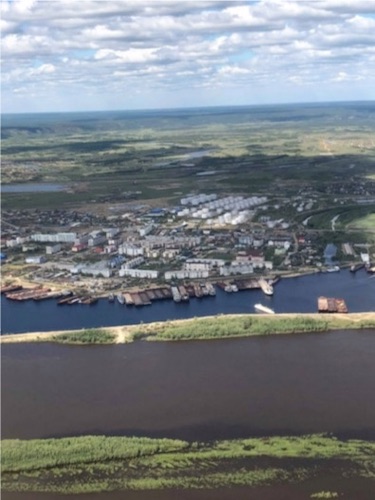
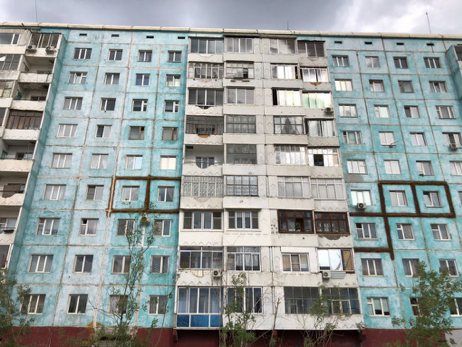
This time, only two members of the team, Jean Paul Vanderlinden and I, travelled to Yakutsk, where we arrived on 11th June. Although our study area is focused on the coastal town and village of Tiksi and Bykovsky, we decided to make a first fieldwork in Yakutsk. This allowed us to join our North-Eastern Federal University contacts. We also aimed at interviewing various stakeholders who were directly or indirectly linked with permafrost thaw at a regional or at a local scale: government authorities, indigenous people, scientific community, etc. By doing so, we aspire to obtain a better understanding of their perception about permafrost thaw and clarify which their priority concerns are.
Yakutsk has over 100.000 inhabitants and is located about 450 kilometers South of the Arctic Circle. It is considered as one of the coldest cities in the World during the winter and is a major port on the Lena River.
When walking around some areas of the city, we somehow felt like we were back in the older time, soviet times as locals sometimes say. Some elements of the city like buses, buildings and advertisings seemed to be quite literally frozen in time. The cracks on the floor and pillars of the buildings were a daily reminder of permafrost presence under the concrete.
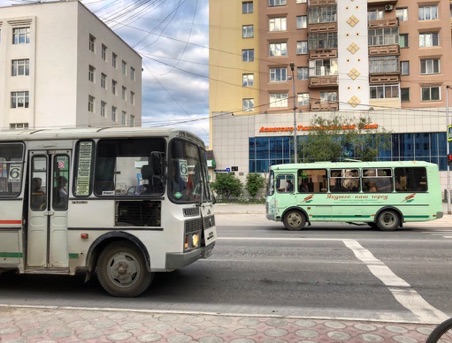
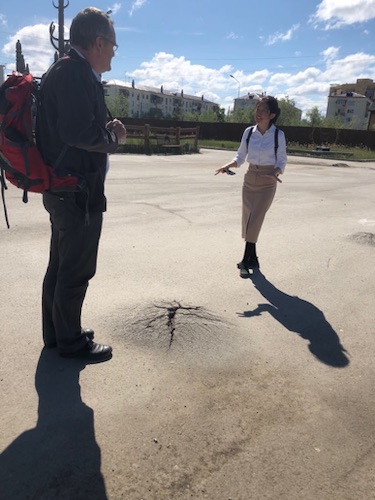
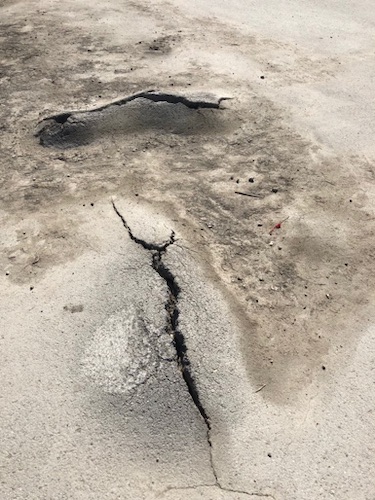
Although none of us spoke Russian at the moment, local people were really kind and helped us all along our journey. In order to facilitate the interviewing processes, we hired a Yakutian NEFU student named Anna Svinoboeva who spoke perfect English and joined us most of the time. We were helped and translated by others as well, like Slava Shadrin (Representative of the Indigenous Peoples of the North) and Marina Mordinova (NEFU Senior Instructor).
We were overwhelmed to see people’s interest on the project and their willingness to participate. During the first 10 days, and thanks to the collaboration of our contacts, we got the opportunity to meet people who were working or representing different institutions such as the Melnikov Permafrost Institute, the Office of the Northern Arctic Peoples Culture, the Office for the Arctic, the Ministry of Nature Protection, Upper Authorities from the North Eastern Federal University of Yakutsk, etc. Moreover, the snowball sampling led us to 14 different individuals who were native either from Tiksi, Yakutsk or other parts in Yakutia.
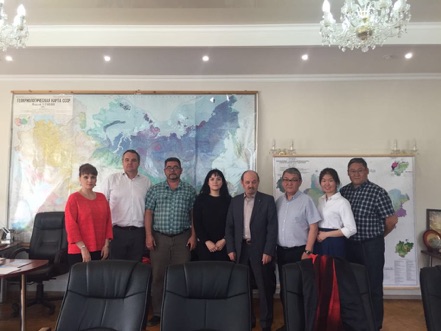
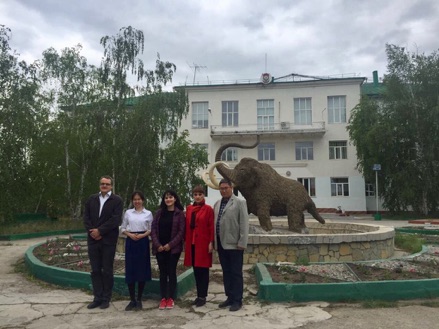
After Jean Paul’s departure, on the 23rd June, I had the possibility to attend a very important celebration in Yakutia: The Ysyakh Festival. During these two days, people thank the deities and spirits for the new year coming, signaled by the summer solstice. People wear beautiful traditional clothes and celebrate it by dancing, eating, creating sports contests and specially sharing with others.
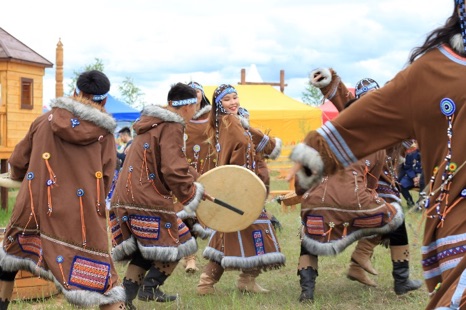
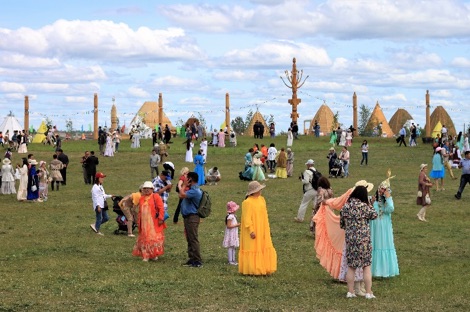
Every day spent in the city was an opportunity to immerse ourselves into their culture, their ways of living and perceiving the World – permafrost is omnipresent! The information gathered during this fieldwork is a first big step towards a better understanding of the complex and multiscale impacts of permafrost thawing on communities’ lives. It also represents an important base for our second fieldwork expected to be between March and April 2019 in Tiksi/Bykovsky.



